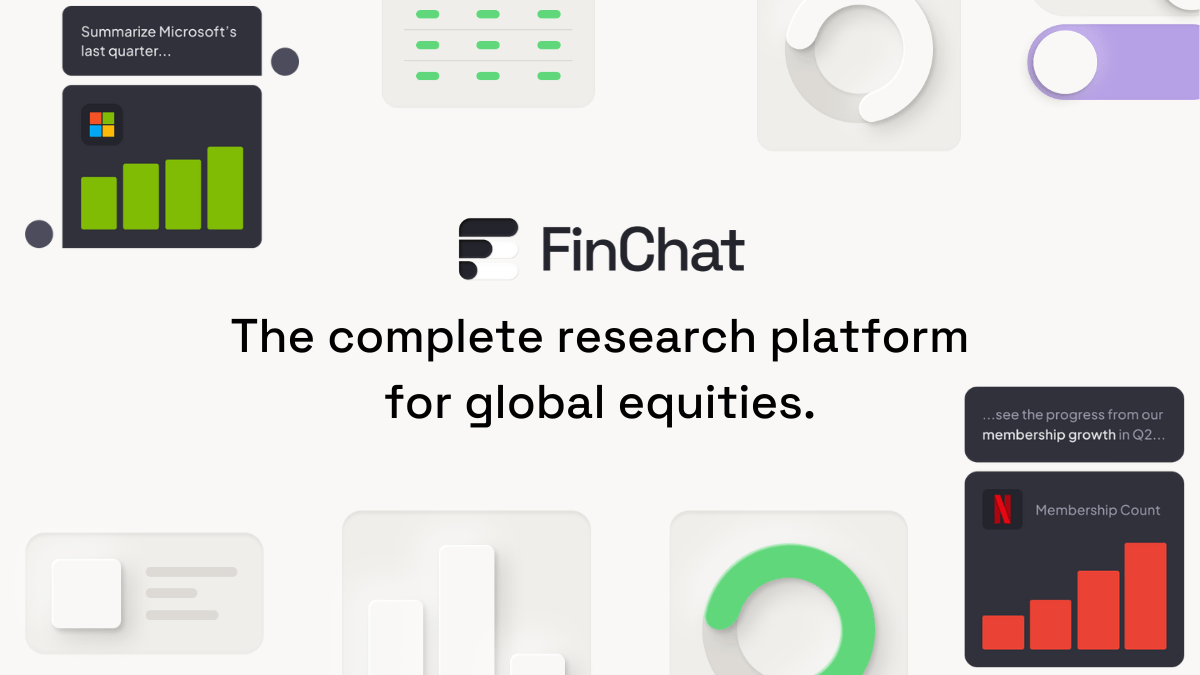Today’s sponsor is:
ChatGPT has come to investing in the form of FinChat. Ask about the top stocks of 2023 or tell FinChat to chart Google’s cloud business and you’ll get a response in seconds. It’s never been easier to get the information you need about the stocks you love.
One of the key insights from Clayton Christensen’s The Innovator’s Dilemma is the concept of disruptive versus sustaining innovation.
According to Christensen, disruptive innovation is the process in which a smaller company, usually with fewer resources, is able to challenge an established business (often called an “incumbent”) by entering at the bottom of the market and continuing to move up-market.
Sustaining innovation occurs when a company creates better-performing products to sell for higher profits to its best customers. Typically, sustaining innovation is a strategy used by companies already successful in their industries. The motivating factor in sustaining innovation is profit; by creating better products for its best customers, a business can pursue ever-higher profit margins.
Some disruptive innovations are easy to spot like cars disrupting the horse and buggy, digital cameras disrupting physical film, or streaming disrupting movie rental companies. However, the line between disruptive and sustaining innovations can be blurry as they’re playing out.
I like to frame it this way: If an innovation is truly disruptive, incumbents don’t stand a chance. Their business model isn’t compatible with the innovation, even if they see it coming a mile away.
So, is artificial intelligence — the talk of 2023 — a disruptive or sustaining innovation?
You may already know the answer.
Artificial Intelligence and the Battle of Big Tech
If artificial intelligence is a disruptive technology, it could upend the tech industry as we know it. Search, word processing, driving, image creation, ads, and even social media posts could be done by AI.
And in late 2022 and early 2023, it appeared a startup — OpenAI — may win the AI war. A disruptive innovation was upon us.
As the year went on and Big Tech started releasing what they were working on in the background, it became increasingly obvious that Big Tech would be sustained by AI and a seemingly disastrous product launch last week confirms that.
Google’s Gemini Stumble
On December 6, 2023, Google released its Gemini model along with the video below that shows both the power of the tool and its ability to switch between chat and image creation.
For a moment, it seemed like Gemini had caught Google up to OpenAI’s GPT-4. But we soon found out the video was sped up, prompts were much longer than indicated, and none of that was disclosed to viewers of this demo. It was an on-goal for Google that wasn’t necessary because it was already a win without the high production video.
Google showed with Gemini that it’s very much in the game with OpenAI, even if it’s a few months behind the curve. And even if Google has to brute force its way into relevance in AI, it has the capital, compute, and brain power to do so.
If Google can catch up to OpenAI, it looks like the AI battle will be between Alphabet, Microsoft/OpenAI, Meta, and NVIDIA. Not exactly a disruption of the status quo.
The AI startup ecosystem
Of course, there are billions of dollars flowing into AI startups. But what are they doing?
Building SaaS businesses on top of OpenAI’s APIs, effectively wrapping the model to make it a bit more custom.
Buying NVIDIA GPUs to serve other startups.
Customizing models from OpenAI, Google, and Meta.
It’s no coincidence that all of these examples are building on top of the existing tech infrastructure and investment by big tech.
And that’s OK. One of my favorite products today is FinChat, the AI-powered finance tool. This is the kind of innovation that AI enables, but it’s a niche business built on top of big tech, not a disruption of big tech itself.
AI looks like it’s headed the way of the smiling curve with value accruing to the biggest players or the best niches.
As much as Gemini’s launch was a PR disaster, I’m already feeling a little better about Alphabet’s position in the Asymmetric Portfolio.
Disclaimer: Asymmetric Investing provides analysis and research but DOES NOT provide individual financial advice. Travis Hoium may have a position in some of the stocks mentioned. All content is for informational purposes only. Asymmetric Investing is not a registered investment, legal, or tax advisor or a broker/dealer. Trading any asset involves risk and could result in significant capital losses. Please, do your own research before acquiring stocks.

